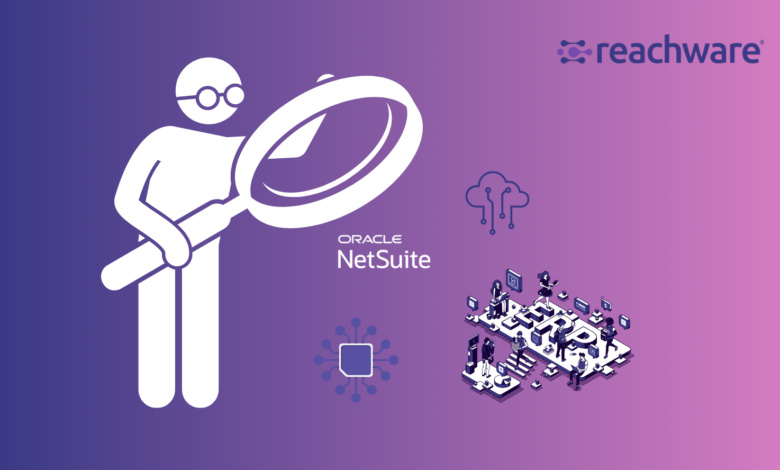Exploring NetSuite ERP Integration for E-Commerce Success

In the competitive world of online retail, businesses must operate with precision, speed, and adaptability. E-commerce platforms are designed to drive sales and manage customer experiences, but as businesses grow, they often struggle with backend complexities such as inventory, order fulfillment, and financial management. This is where NetSuite ERP (Enterprise Resource Planning) integration becomes a transformative solution. By unifying e-commerce operations with a powerful ERP system, businesses in Saudi Arabia and beyond can scale efficiently, improve data visibility, and deliver a seamless customer experience.
The Need for Unified Systems in E-Commerce
E-commerce platforms are excellent at managing the front-end customer journey, from browsing products to checking out. However, they are not built to handle complex business processes like financial reporting, procurement, warehouse management, and customer relationship management (CRM). Operating separate systems for the front and back end leads to siloed data, inefficient workflows, and increased chances of human error.
Challenges of Disconnected Systems
When systems are not integrated, businesses face issues such as inconsistent inventory levels, delayed order fulfillment, and duplicate data entry. For instance, if the e-commerce platform records a sale but fails to sync with the warehouse management system, customers may place orders for items that are out of stock. Similarly, financial teams may struggle to reconcile data from different systems, delaying month-end close and decision-making.
Why NetSuite ERP is a Preferred Choice
NetSuite ERP is a cloud-based solution that offers a comprehensive suite of business management tools under one platform. From finance and accounting to supply chain and customer service, NetSuite is designed to provide real-time visibility and automation. Integrating NetSuite with an e-commerce platform helps businesses centralize their operations, allowing them to grow faster without being bogged down by operational inefficiencies.
Benefits of NetSuite ERP Integration for E-Commerce
Integrating NetSuite with an e-commerce platform brings several tangible benefits that can significantly impact performance, scalability, and customer satisfaction.
Real-Time Inventory Management
NetSuite enables real-time synchronization of inventory across multiple sales channels. Once integrated, inventory levels are updated automatically as orders are placed and fulfilled. This eliminates the risk of overselling or stockouts and helps businesses optimize warehouse operations. For companies managing multiple product lines or operating in various regions, this feature ensures consistency and accuracy.
Streamlined Order Processing
With integration, the entire order lifecycle—from placement to delivery—is managed efficiently. Orders made through the e-commerce store flow directly into NetSuite for fulfillment and invoicing. Automated workflows can generate pick lists, packing slips, and shipping labels without manual intervention. This results in faster order processing, reduced human error, and higher customer satisfaction.
Improved Financial Accuracy and Reporting
NetSuite’s robust financial tools offer integrated accounting, budgeting, and revenue recognition capabilities. When sales and payment data are automatically transferred from the e-commerce platform, finance teams gain accurate, real-time insights into revenue, cash flow, and profit margins. This helps with faster reconciliation and more informed strategic decisions.
Enhanced Customer Experience
A seamless backend integration translates to better customer experiences. Real-time stock updates, accurate delivery estimates, and automated status notifications build trust and loyalty. Additionally, customer service teams can access a unified view of customer interactions, orders, and issues, allowing them to provide timely and personalized support.
Scalability and Flexibility
As businesses expand—whether by adding new product lines, entering new markets, or launching additional online stores—NetSuite’s scalable architecture can accommodate growth without requiring a complete system overhaul. E-commerce platforms integrated with ERP can manage high order volumes and complex operations, making them suitable for both SMBs and large enterprises.
Key Considerations Before Integration
Before moving forward with NetSuite ERP integration, it’s essential to evaluate a few critical factors to ensure a smooth and effective implementation.
Compatibility with Your E-Commerce Platform
Ensure that the integration solution is compatible with your existing e-commerce platform, whether it’s Shopify, Magento, WooCommerce, BigCommerce, or a custom solution. Some platforms offer pre-built NetSuite connectors, while others may require custom APIs for seamless communication between systems.
Data Mapping and Synchronization
One of the most important steps is mapping data between the two platforms. This includes products, customers, orders, payments, shipping details, and more. Synchronizing data fields correctly avoids errors and ensures that the systems remain consistent.
Choosing the Right Integration Partner
Integration projects can be complex, especially for businesses with custom workflows. Partnering with an experienced NetSuite integration provider can simplify the process. These experts assess your current systems, recommend integration strategies, and handle configuration, testing, and deployment.
Steps to Successfully Integrate NetSuite with E-Commerce
A successful ERP integration follows a structured process that minimizes disruption and maximizes return on investment.
Assess Business Needs and Goals
Start by defining what you want to achieve through integration. Are you looking to improve inventory accuracy, reduce order processing times, or enable multi-channel selling? Clear goals help you prioritize features and design an integration roadmap that aligns with your business strategy.
Design and Configure the Integration
Once the scope is defined, your integration partner will design the integration architecture. This includes configuring data flows, setting automation rules, and ensuring that data validation mechanisms are in place. It’s crucial to test integration in a sandbox environment before going live.
Conduct Testing and Quality Assurance
Thorough testing ensures that data is transferred accurately and that workflows operate as expected. This includes placing test orders, verifying financial entries, and checking inventory updates. Addressing issues early reduces post-launch disruptions.
Training and Support
Equip your team with the knowledge to use the integrated system effectively. This includes training on dashboards, reporting tools, and exception handling. Additionally, ongoing support ensures that any technical issues or changes are resolved promptly.
Industry Use Cases and Success Stories
NetSuite integration has delivered measurable success across various industries, especially in retail, fashion, electronics, and health & wellness sectors.
Retailers Expanding Online Operations
Many brick-and-mortar retailers in Saudi Arabia have expanded online to meet growing digital demand. By integrating NetSuite with their e-commerce platforms, they’ve been able to centralize inventory across stores and online channels, offering customers consistent experiences and availability.
Global Brands with Regional Warehouses
For international brands operating in the GCC, NetSuite integration has made it possible to manage regional warehouses efficiently. Orders from customers in Riyadh, Jeddah, or Dammam are routed automatically to the nearest warehouse, reducing delivery times and shipping costs.
Subscription-Based Businesses
E-commerce businesses offering subscriptions—for example, pet supplies or wellness products—use NetSuite to manage recurring billing, inventory replenishment, and customer engagement. Integration ensures that renewals, invoices, and payments are automated and error-free.
The Future of E-Commerce Integration with NetSuite
The future of online business lies in automation, data-driven decision-making, and customer-centric experiences. As technologies like AI, machine learning, and predictive analytics become mainstream, platforms like NetSuite will offer even more advanced capabilities.
Embracing Omnichannel Selling
NetSuite’s integration capabilities are not limited to e-commerce websites alone. They can also support marketplaces like Amazon, Noon, and eBay, social commerce through Instagram and TikTok, and even point-of-sale systems in physical stores. A unified backend enables true omnichannel retailing.
Leveraging Data for Growth
With ERP data integrated into every aspect of the business, companies can use advanced analytics to identify trends, predict demand, and personalize offerings. This drives customer loyalty and helps businesses remain agile in a constantly evolving digital landscape.
Conclusion
Integrating NetSuite ERP with your e-commerce platform is not just a technical upgrade—it’s a strategic investment in your company’s growth. From improving operational efficiency and financial accuracy to delivering a superior customer experience, the benefits are vast and long-lasting. Businesses in Saudi Arabia that embrace ERP integration are better equipped to scale, innovate, and compete in the dynamic e-commerce market.
Choosing the right integration strategy and partner is essential for success. With the right approach, NetSuite becomes the backbone of your digital commerce operations—powering everything from inventory to invoicing and beyond.



